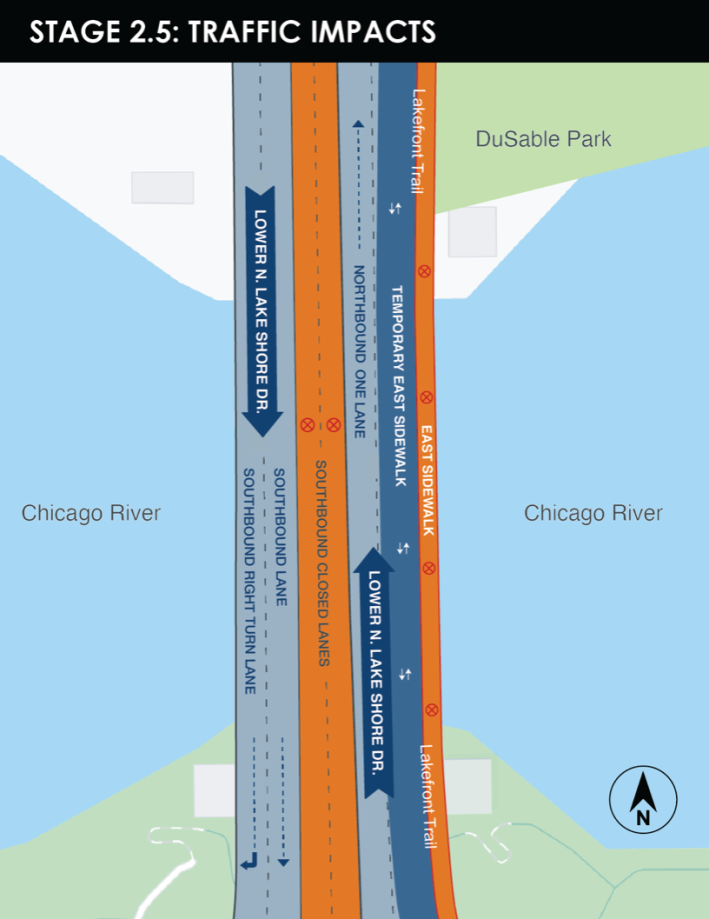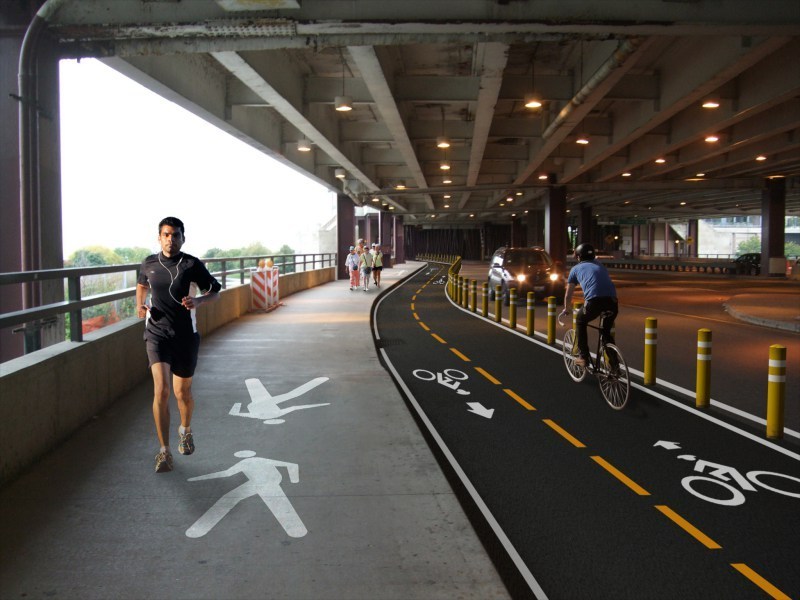Somewhere in our city right now, Streetsblog Chicago cofounder Steven Vance is sarcastically saying, "Hmm, why didn't I think of that?" Update: Steven actually said just that:
I did say that when I saw @AldReilly’s newsletter on Friday that showed the staging and closures plan.
— Steven (@stevevance) February 4, 2020
So infuriating that the issue of the LFT at Navy Pier would have been resolved a decade ago for 1/10th the cost.
Way back in 2012, Steven proposed converting one of the excess lanes of Lower Lake Shore drive into a two-way protected bike lane to alleviate crowding on the Lakefront Trail by Navy Pier, as a much cheaper, faster alternative to the Navy Pier Flyover bridge. The span is currently budgeted at $64 million and the work, which started in 2014, has taken longer to build than the Sear Tower. Granted, that non-flyover solution wouldn't have solved the problem of the trail's tricky intersections with Illinois Street and Grand Avenue, but I suspect a major reason the idea was a non-starter may have been that city officials were afraid of a political backlash if they permanently took that space away from drivers.
Eight years later, Steven's vision was scheduled to finally became a reality today, albeit on a temporary basis. The Chicago Department of Transportation planned to turn the far right lane of northbound Lower LSD into a protected 9-foot wide path for pedestrians and cyclists to accommodate trail traffic during the latest phase of construction.

CDOT says it will take several days of work before this temporary bike/ped path can actually be opened up for use by cyclists, joggers, skaters, and strollers. Apparently installing concrete Jersey walls, a dashed center line, and wooden curb ramps is a very time-consuming process.
Under this layout, there will be only one northbound lane for motor vehicles on the lower Drive. But I'll bet you artisanal doughnuts to dollars that, thanks to the magic of traffic evaporation -- the phenomenon that when you take away space for drivers, demand tends to go away as well -- the lane closure won't make a lick of difference in motorist travel times.
The current phase of the project involves retrofitting the existing LSD bridge with a cantilever structure on the east side of the span that will allow for widening the trail to eliminate the existing bottlenecks. The work includes punching holes for the path through the 1930's-era limestone bridge houses. The project also involves structural and mechanical repairs to the movable bascule bridge.
Work on the flyover is expected to wrap up this spring. But considering the absurd level of delays this project has already seen, I wouldn't hold my breath.




